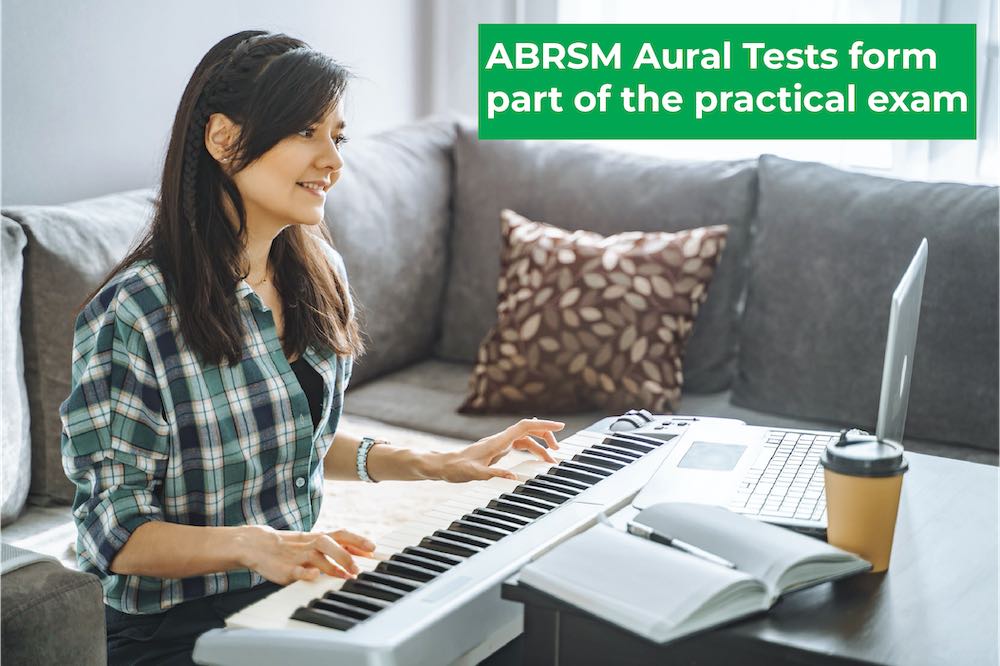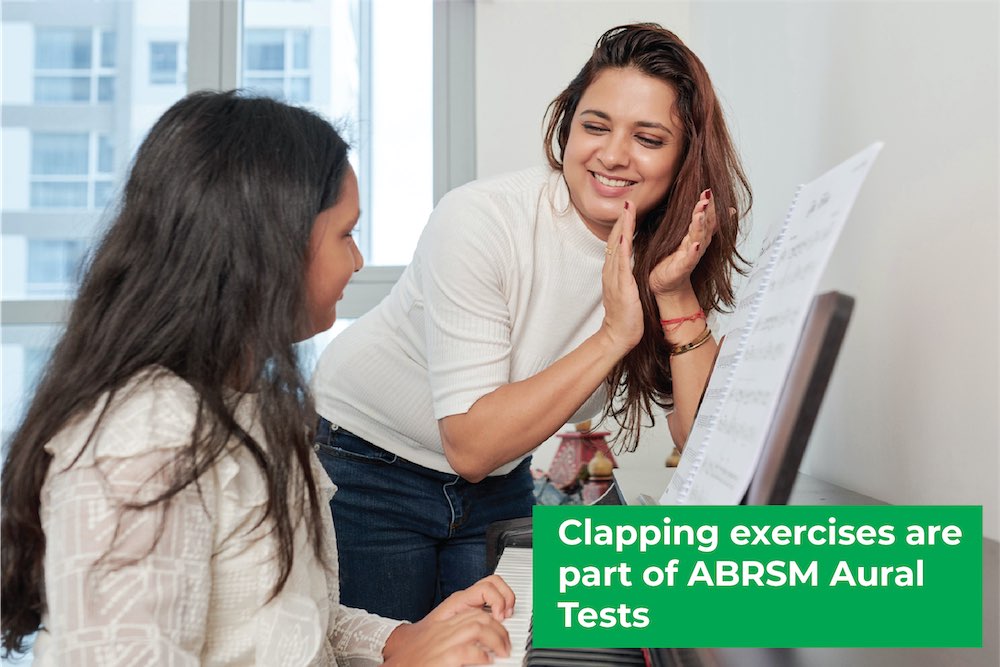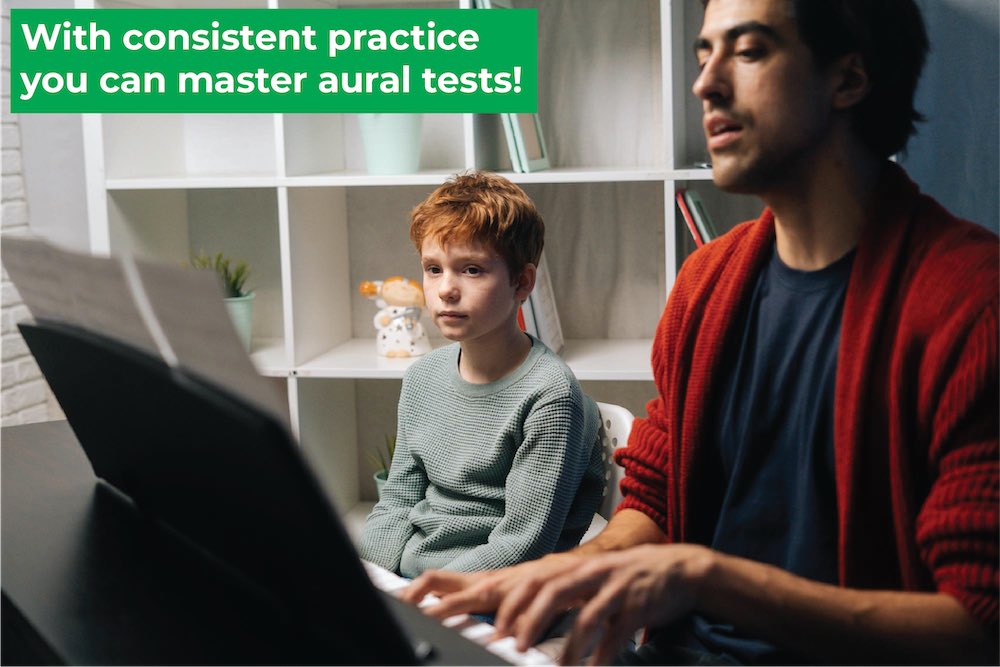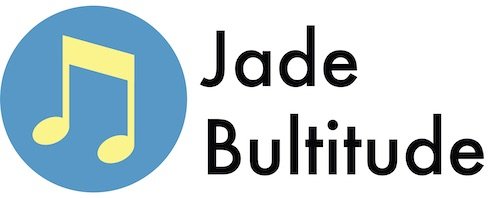Why are ABRSM Aural Tests important? They will make you a better musician and they will allow you to get that practical exam distinction! As a professional musician and teacher with over 15 years experience, I have helped many students to ace these tests. More than this I believe that working towards the aural tests helps students to develop key musical skills.
How do Aural Tests fit in with the main ABRSM exams?
The ABRSM is a specialist exam board for instrumentalists. ABRSM stands for the Associated Board of the Royal Schools of Music and is a combination of a few of the royal schools of music in the United Kingdom, namely the Royal Academy of music, the Royal College of Music, the Royal Scottish Academy of Music.
The ABRSM provide graded music exams that test different aspects of a students ability. Each exam has four different section and these are:
- playing a selection of three pieces
- a selection of scales
- sight reading
- aural tests
Often Aural tests are the one aspect that makes students very worried, but if you prepare properly it is something not to be scared of!
Why do they include aural tests?
Having good aural skills is vital to being a good musician. Aural training helps all students develop their sense of pitch, develop a sense of pulse and tempo and also learn to recognise different features of a melody such as the rhythm, time signature, dynamics, articulation and other details. These graded music exams include these to ensure that each student has a complete learning

What is involved in the Aural tests?
The examiner will have a set three to four exercises that they will ask you in the exam, that your teacher will have prepared you for. These tests will observe different aural skills such as your pulse, pitch, rhythm, listening skills and more. Every test will be played on the piano, but don’t worry, none of these abrsm aural tests require you to have ay experience playing the piano! They are all purely to test your essential listening skills, the other aspects of the exam will test your playing skills!
Grade 1-3 involve have four different tests. The first one will test your knowledge of time signatures by seeing if you can recognize strong beats and demonstrating this with a louder clap on the first beat of each bar and saying whether it is in 2, 3 or 4 time.
The second test requires you to sing a short phrase that the examiner will play. The third test requires you to listen carefully, you must listen to a melody and see if you can observe a change in either pitch or rhythm and usually say where in the piece it is (beginning, end etc)
The final test requires you to answer questions on different features of a piece.

As you progress through each ABRSM exam, the aural tests progressively get harder but the structure stays very similar. The aural tests are designed to practice students listening skills with various activities such as singing echos, answering questions on features of a piece of music, spotting the difference between melodies and more.
As you move through to the higher grades you have to be able to answer questions on the features of a piece and be able to relate this to different musical periods, you must also be able to describe the style of the piece, the texture of the piece, recognise whether it is in a major key or a minor key, recognise chords and their inversions, recognise cadences and more.
What is the ABRSM Aural Trainer marked out of?
The ABRSM aural test is marked out of 18.
- To achieve a Distinction you need either 17 or 18.
- To achieve a Merit you need either 15 or 16.
- To achieve a Pass you need between 12 and 14.
Anything below 14 will not achieve a pass in the ABRSM exams.

How do I achieve a good mark in the aBRSM aural tests?
If you want to achieve a good mark in the abrsm aural tests you need to make sure that you train and practice your aural skills.
Your music teacher will have essential teaching experience that will ensure your aural practice is well structured.
You can also make sure you use either the free download or cds that come with your ABRSM books. There are also excellent apps out there that make it much easier to practice at home. To have focused ABRSM training you can use the abrsm aural trainer on the App Store. The only draw back from this is that it has limited examples, if you are using it as a practice for mock tests just before the exam this is excellent.
Otherwise I recommend to use something more general to help with your aural learning and practice such as Tone Gym. This programme will train you in all aspects of the aural test. It also has excellent free samples so you can complete your aural training regularly and for free! If you would like to read more about learning with Tone Gym then make sure to click here.
